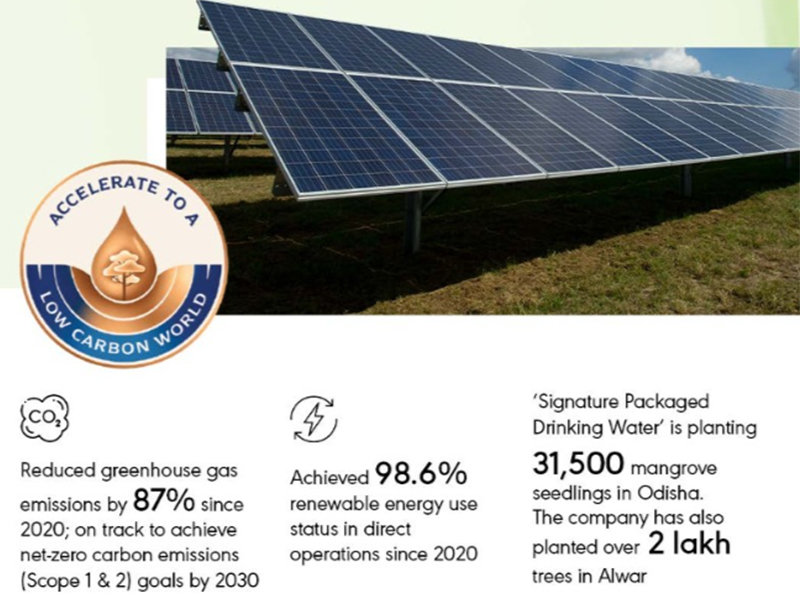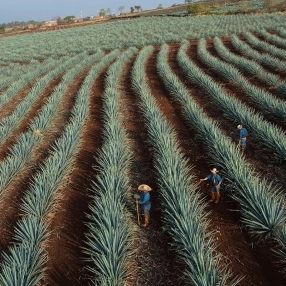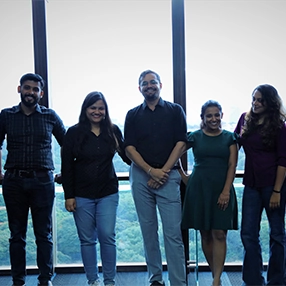Diageo India is among the country’s leading beverage alcohol companies with an outstanding collection of premium brands.
We are taking steps towards curbing carbon emissions and shifting to a more sustainable future. We are pursuing our ambition of achieving 100% renewable energy [RE 100] by doubling on-site solar potential across our manufacturing facilities.
We have started work on Regenerative Agriculture with a special focus on rice, in line with our efforts to reduce our value chain Scope 3 Carbon emissions.
- Carbon from operations: The company has eliminated the use of coal fossil fuel by using biomass renewable-fueled boilers at own distilleries since 2022. It has also reduced its greenhouse gas emissions by 87% since 2020 through concerted efforts to reduce energy demand, and enhancing the use of low-carbon fuel alternatives and renewable electricity to achieve its target of net-zero carbon emissions (Scope 1 & 2) across direct operations by 2030. Diageo India has also increased its in-house solar energy capacity to 2.6 MW and achieved 98.6% renewable energy use status in direct operations since 2020, enabling the company to accomplish 100% renewable energy status ahead of its 2030 target.
- Carbon from community: As part of efforts to drive climate resilience the company’s brand ‘Signature Packaged Drinking Water’ is associated with a mangrove regeneration project in Puri, Odisha, where 31,500 mangrove seedlings are being planted. Additionally, over 1 lakh trees were planted to offset residual greenhouse gas emissions. The company has also planted more than 2 lakh trees as part of its afforestation drive in Alwar, under the ‛Trees Outside Forest in Rajasthan’ (TOFR) programme.
- Carbon from supply chain: Beyond direct operations, Diageo India works closely with suppliers (Scope 3 emissions) encouraging switching to low-carbon alternatives, while adopting newer technologies and best practices in the supply chain.
We are supporting raw material and packaging material suppliers to switch to renewable and low carbon fuel alternatives to reduce scope 3 emissions and are focusing on lowering supply chain emissions by 50% ahead of our 2030 target.








